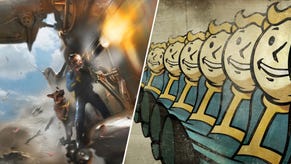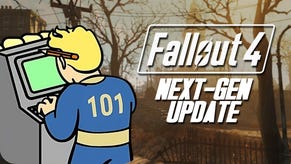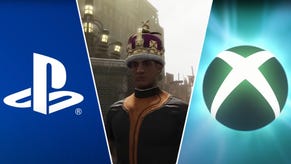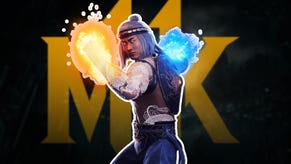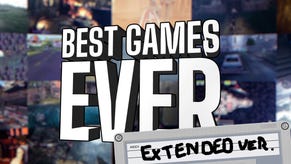Shadowrun Dev on Kickstarter: "Put Your Ego Aside and Communicate with Your Audience"
Amid the recent crowd-funding issues, Mike talks to one studio that's doing Kickstarter right.
This article first appeared on USgamer, a partner publication of VG247. Some content, such as this article, has been migrated to VG247 for posterity after USgamer's closure - but it has not been edited or further vetted by the VG247 team.
Kickstarter is just a service. Sometimes amid all the doom and gloom, people forget that. Kickstarter is meant to connect creative people to fans who are willing to fund interesting projects. Two weeks ago, problems with that service were highlighted when veteran developer Peter Molyneux was called out on the mishandling of his first Kickstarted title, Godus. The Godus situation showed many of the ways that Kickstarter projects can go wrong. Kickstarter drives over-promise, over-estimate, get delayed, and get cancelled all of the time.
What about when Kickstarter works?
Seattle-based developer Harebrained Schemes is rather good with Kickstarter. The studio has Kickstarted three gaming projects, two of which they've released. The small team of around 20 developers has delivered on the promise of the service consistently. Their first title was Shadowrun Returns, a game adaptation of the popular pen-and-paper RPG series. That funding drive closed at $1.8 million, far above its original $400,000 goal. The studio followed that a year later with Golem Arcana, a tablet-enhanced miniatures board game. Last week, Harebrained finished the Kickstarter for Returns sequel, Shadowrun: Hong Kong. Like the first Shadowrun drive, they finished far above their intended goal.
So what does Harebrained Schemes do differently? That question led me to this conversation with Harebrained Schemes co-founder Mitch Gitelman about the developer's success on Kickstarter. I ask him about what a developer needs to have a successful Kickstarter project.
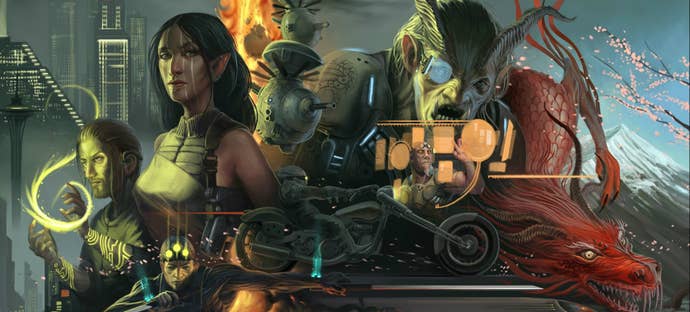
"We tell our audience exactly what's going on and we say 'No', which surprises them."
"It's best to have something people want," he replies. "That's what happened with Shadowrun Returns. We were meeting a pent-up need. There hadn't been a Shadowrun game really since 1993; the one I made in 2007 didn't count and actually made people's hunger for a Shadowrun game even higher. After that, you have to be believable. People have to say, 'Yes, this is a team that can actually deliver.' In this case, [Harebrained CEO and original Shadowrun designer Jordan Weisman] and I have been shipping videogames forever. That lent credibility. Jordan being the creator of Shadowrun lent credibility. There have been Kickstarters by very famous people that have not met the audience's expectations."
Much has been said about over-promising on Kickstarter funding drives. Kickstarter only gives you money if you make it over your funding goal, which tends to drive developers to promise almost anything and everything to reach that mark. According to Gitelman, being able to say "No" to your backers is important and doing so increases your credibility.
"We tell our audience exactly what's going on and we say 'No', which surprises them," he tells me. "They say, 'Hey, can you add this feature?' and we say "No, it's out of scope, out of budget.' instead of 'We'll look into it.' We'll say, 'We have looked into it and we can't do it.' They appreciate the credibility of people who treat them not like investors, but like a valued audience."
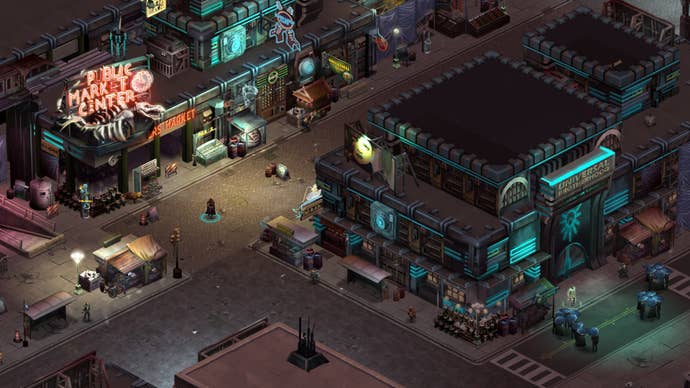
Growing Pains
Even Harebrained Schemes promised a bit too much during the Kickstarter for Shadowrun Returns. Gitelman admits that when the money's coming in hot and pushing you towards higher stretch goals, there's a tendency to keep making up new ones. This can find smaller developers on a grueling pace if they decide to stick to their promises.
"We did over-promise because we didn't know any better," he says. "Things went so fast. In order to keep the momentum going, we just kept coming up with cool new ideas which we really liked, but we had no idea how to deliver them at the time. In order to live up to what we said we would do, we killed ourselves for a year. We worked very, very long hours. Jordan and I worked most weekends in order to meet those expectations. We weren't making promises we didn't think we could deliver. We fully intended on delivering everything. We killed ourselves and we couldn't deliver everything."
"We did over-promise because we didn't know any better. In order to live up to what we said we would do, we killed ourselves for a year."
The inability to deliver on every promise is what led to the creation of the Shadowrun Returns expansion Shadowrun: Dragonfall. The $1 million stretch goal for Returns was an additional city and a backer poll chose Berlin as the location. When it came time to add Berlin, the team realized that getting Berlin in-game on schedule was going to be impossible. Even the launch of Returns itself was delayed a few months. The key for Harebrained was not only letting fans know early, but also delivering more than promised.
"We figured if we were going to disappoint people, let's over-deliver. That why we're here today. That commitment to living up to what you say you're going to do," says Gitelman. "The overwhelming consensus [about the delays] among our backers was 'Take the time you need to ship something great.' It wasn't super-stressful. We were a little nervous about putting out the updates that said that."
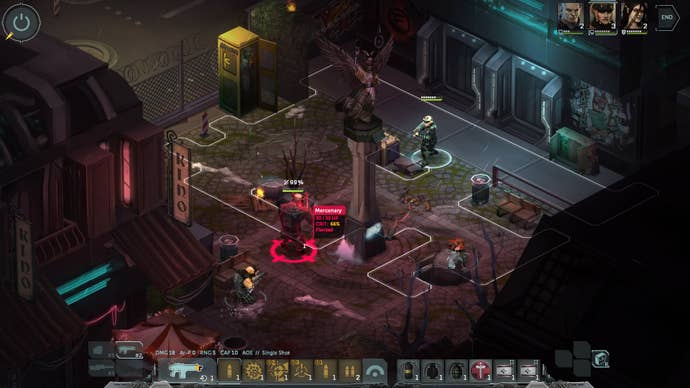
That said, Harebrained doesn't tell fans everything. The studio is transparent, letting fans into the development process, but there's still aspects that remain behind closed doors.
"We share everything we want them to know," Gitelman explains. "Nobody really wants to see how the sausage is made, they just want it to taste great. We explain our process to them, but we don't show you the hard parts. Especially [Dragonfall lead writer Andrew McIntosh] and I, we're not afraid to kill our children. The first story treatment for Shadowrun: Hong Kong was really cool, but it was really complex and would've taken too long to tell. So we had to go in and start editing. Some of the cool characters we came up with don't exist anymore. One of them is dead before the game starts. If you're a fan reading that, you're going, 'No, that was my favorite part!' You can't show them everything. That's the difference."
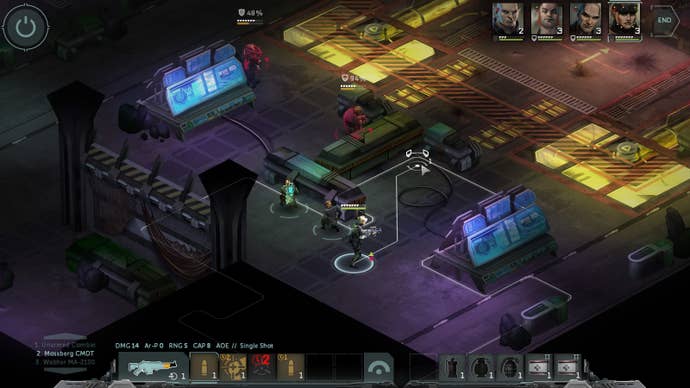
"Nobody really wants to see how the sausage is made, they just want it to taste great."
One thing that tends to surprise backers is that even veteran developers have issues with Kickstarter. In addition to the tendency for scope creep mentioned above, the stated funding goal on many Kickstarters isn't enough to develop the original vision. Developers tend to kick in the rest out-of-pocket or find other investors. Gitelman says Harebrained Schemes had to pay "quite a bit of money" to handle physical Kickstarter rewards from Shadowrun Returns' drive. In fact, the issues with Returns' rewards caused Harebrained to focus on a smaller set of physical rewards for Hong Kong.
"We only offered two physical rewards for Hong Kong," says Gitelman. "A messenger bag that was one-size-fits-all and these 5-inch collectible figurines. That was it because we had to add staff just to ship Kickstarter rewards before. Just to track them and deal with the manufacturing; the customer service hassles were unbelievable."
"The customers weren't bad, but we had these USB dog tags which were a hit," he explains. "It turns out that 20 percent of them failed. So we had to replace those. Then there were t-shirts. It was debilitating. More to the point, it actually distracted us from making the game. So when we went back to Kickstarter this time, we were very clear that these were the two physical rewards we were doing. Oddly enough, everyone's reacted positively to that."
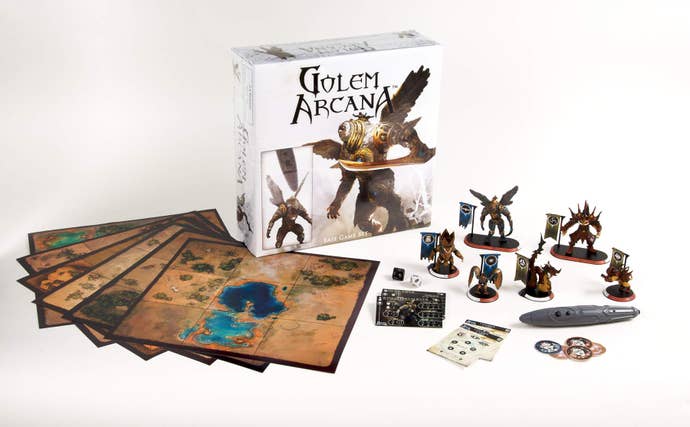
The True Meaning of Kickstarter
Despite two Shadowrun Kickstarter drives above $1 million, Gitelman doesn't see those titles as delivering on the full promise of Kickstarter. Golem Arcana was the studio's second Kickstarter project, offering fans a tablet-enhanced board game with physical miniatures. Golem Arcana just barely crossed its funding goal of $500,000, but Gitelman lights up when he talks about the game.
"I consider that to be a real Kickstarter success story. Far more than Shadowrun Returns," says Gitelman. "Going to Kickstarter with an old game setting that people have 25 years of nostalgia for... that doesn't take that much skill. Going to Kickstarter with this brand-new way of playing games? A new game-world is one thing, but a new mechanic? That's something to talk about. That's what Kickstarter is really about for me. Creative people bringing something that's really cool and they're passionate about making. They can't go to investors for it, so they need to go to the audience."
"It was a knife fight. I'm very proud of Golem Arcana."
Gitelman explains that Golem Arcana isn't just unique in the mechanics, but also the narrative itself: instead of the traditional European fantasy setting, the game has a Middle Eastern/Babylonian look to it. He's also pretty happy that "all the good guys aren't necessarily white and pretty." It makes the game stand out in a crowd. Despite this, Golem Arcana required far more work from the studio during its funding drive.
"It was a knife fight," Gitelman admitted. "We made $100,000 on the first day. Then the next day was crickets. We realized we were going to need to work much harder on this. So we had to put a lot of effort into that Kickstarter, doing live-streaming games and the prototype. I'm very proud of Golem Arcana."
Once it was funded though, the reality was Golem Arcana was an enticing product. Harebrained took the game to GenCon expecting a few sales based on live demos. The response was amazing, with a complete sell-out.
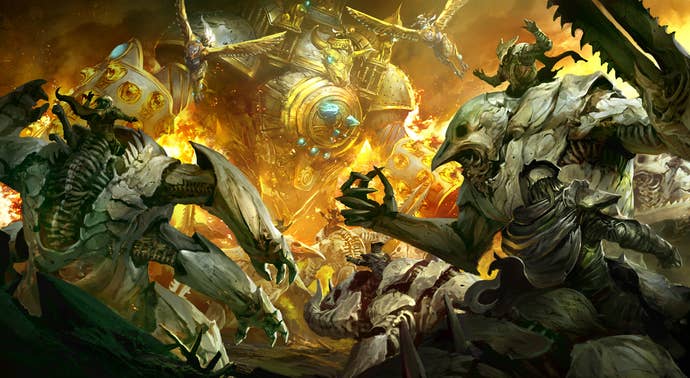
"The debut of Golem Arcana was way beyond our expectations," says Gitelman. "It demoed great at the show. What we didn't expect was this absolute tidal wave of support. Our booth was overrun with people. There were lines to buy the game. We figured people would come back the last day and pick it up. Instead, they bought the entire product line."
"We ran out the first day," he continues "We had to call the distributor and get more shipped in for the next morning. That happened on the next day, too. On Saturday, we completely ran out of stock and couldn't get anymore in, but that was still our biggest sales day. We told people, 'We'll ship it to you and you'll get the Gencon bundle price.' That's Kickstarter to me. We bring it to the customer where they live and they say they have to have it."
Now Golem Arcana is self-sustaining. Gitelman says the studio won't be returning to Kickstarter for further additions to the game. They've released a number of additional expansions, featuring physical and digital-only characters. New races and new lore are available. An update for the app now allows 8 players in a multiplayer game, army banner creation, a new way to transfer armies, and a host of other new features. It's a unique idea that wouldn't exist without Kickstarter, one that thrives now that it's a reality.
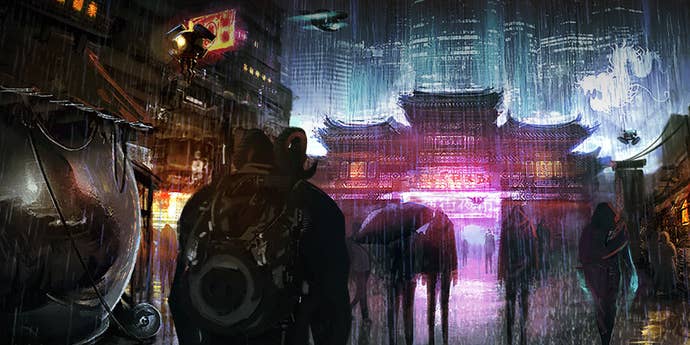
Heading to Hong Kong
Now Harebrained Schemes is fully-focused on developing Shadowrun: Hong Kong. The studio has weathered the release of Shadowrun Returns, Shadowrun: Dragonfall, Shadowrun: Dragonfall Director's Cut, and Golem Arcana. What used to be a team of 8-12 developers is now nearly 20 devs working on three games.
"We've learned a lot," says Gitelman. "Everything about Harebrained Schemes has evolved. It's just easier making new versions of this game. For Dragonfall, all we did was listen to the audience. For Director's Cut, we read their comments and reviews, and fixed what they said. It turns out if you just put your ego and arrogance aside and communicate with your audience, they'll buy your s**t. It's crazy talk."
"It turns out if you just put your ego and arrogance aside and communicate with your audience, they'll buy your s**t."
One thing that's changed is platform focus. Returns and Dragonfall released on tablets and PCs, but Hong Kong is PC-only. Gitelman says that's because the audience just wasn't hyped for Shadowrun on tablets.
"Hong Kong's PC-only for a variety of reasons," he tells me. "Shadowrun Returns was pretty successful on tablets. When Dragonfall came out, we did okay on tablets, but the business really isn't there for a premium title. The audience really wasn't there. Building for tablets and PC also changes the design of your game. It changes the decisions you make. We're not doing tablets so we can focus on making the PC game look and play as best it can."
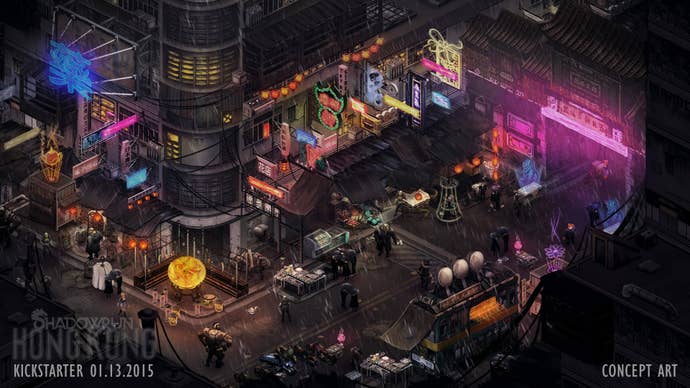
One thing Harebrained has avoided completely is Steam Early Access. Many developers will Kickstart a game and then put the alpha and beta versions on Steam Early Access. Valve's service gives fervent fans a chance to guide the development of their favorite titles, but it usually comes at a premium. Gitelman says Early Access doesn't work for Harebrained Schemes.
"I'm not quite sure why people do Steam Early Access," he adds. "I think what they're looking for is just another revenue generator. I've seen people make it pretty expensive. 'You get to play a shitty version of our game, but you pay a premium for it!' That's alien thinking to me. Honestly, we're pretty conservative about letting people see our stuff. I don't want someone to get the wrong idea about our game. Especially with the stories that we do for Shadowrun, which are pretty spoiler-intensive, we don't want those getting out. We just want people to play the game and experience right then and there."
When Shadowrun Returns hit $1 million, it put a second city on the table, which eventually became Shadowrun: Dragonfall. Shadowrun: Hong Kong's million dollar stretch goal is an additional mini-campaign in Hong Kong, but I'm curious as to what comes next. Shadowrun Returns' city poll put "more Seattle" as the next locale after Hong Kong, but Gitelman doesn't know if that's where Shadowrun is going in the immediate future.
"I don't know what's next. I don't know if it's Seattle," he admits. "It's the iconic Shadowrun location, but at the same time-- for us, Shadowrun is not Seattle. It's what happens when magic and technology collide. And what that does based on where you are in the world. What happens in Berlin, Seattle, and Hong Kong? They're very different places. It allows us some real interesting creative freedom. Here's 25 years worth of stuff and we can go mine that. That's way more interesting to us than just going back to Seattle and telling a story."


